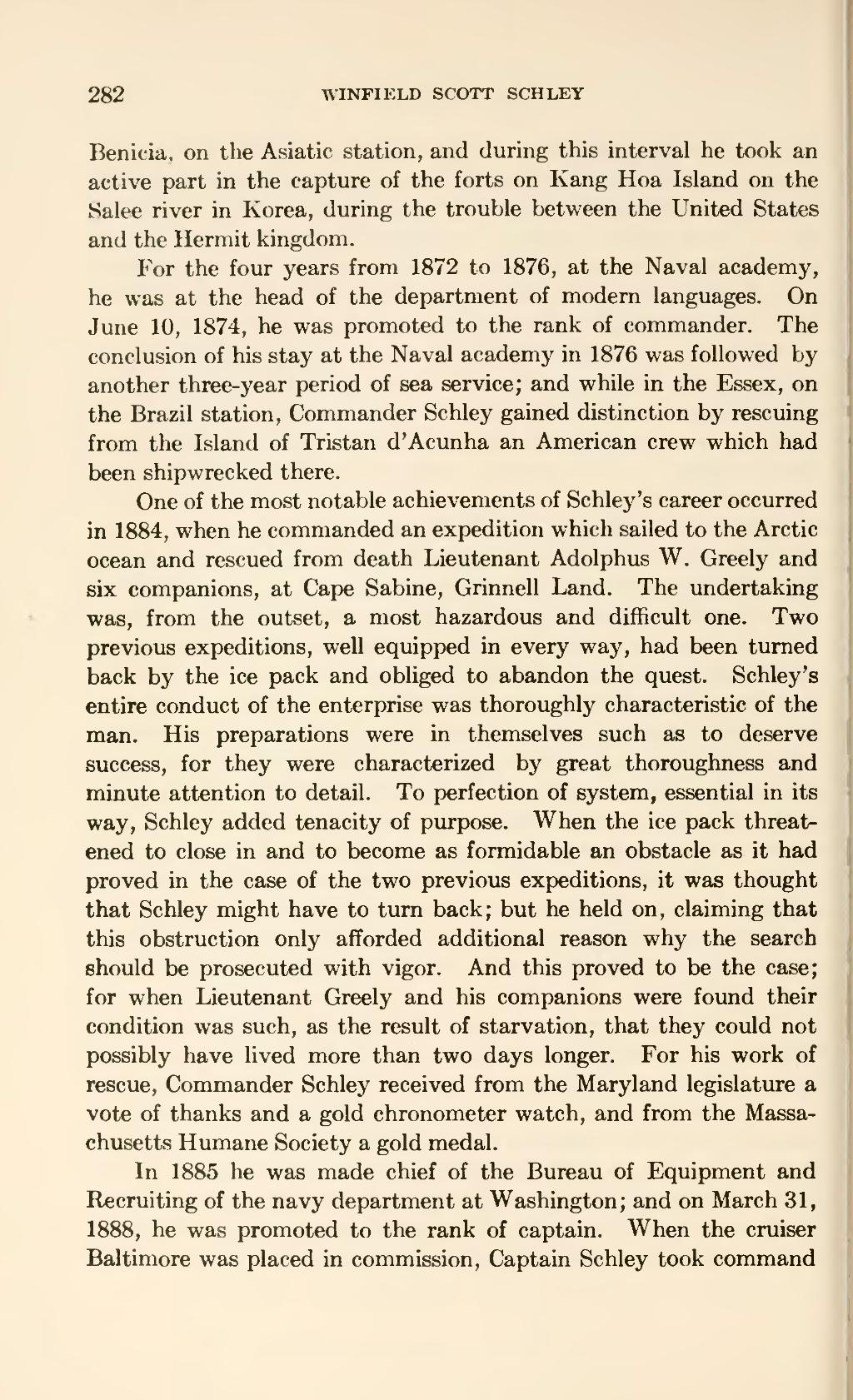Benicia, on the Asiatic station, and during this interval he took an active part in the capture of the forts on Kang Hoa Island on the Salee river in Korea, during the trouble between the United States and the Hermit kingdom.
For the four years from 1872 to 1876, at the Naval academy, he was at the head of the department of modern languages. On June 10, 1874, he was promoted to the rank of commander. The conclusion of his stay at the Naval academy in 1876 was followed by another three-year period of sea service; and while in the Essex, on the Brazil station, Commander Schley gained distinction by rescuing from the Island of Tristan d'Acunha an American crew which had been shipwrecked there.
One of the most notable achievements of Schley's career occurred in 1884, when he commanded an expedition which sailed to the Arctic ocean and rescued from death Lieutenant Adolphus W. Greely and six companions, at Cape Sabine, Grinnell Land. The undertaking was, from the outset, a most hazardous and difficult one. Two previous expeditions, well equipped in every way, had been turned back by the ice pack and obliged to abandon the quest. Schley's entire conduct of the enterprise was thoroughly characteristic of the man. His preparations were in themselves such as to deserve success, for they were characterized by great thoroughness and minute attention to detail. To perfection of system, essential in its way, Schley added tenacity of purpose. When the ice pack threatened to close in and to become as formidable an obstacle as it had proved in the case of the two previous expeditions, it was thought that Schley might have to turn back; but he held on, claiming that this obstruction only afforded additional reason why the search should be prosecuted with vigor. And this proved to be the case; for when Lieutenant Greely and his companions were found their condition was such, as the result of starvation, that they could not possibly have lived more than two days longer. For his work of rescue, Commander Schley received from the Maryland legislature a vote of thanks and a gold chronometer watch, and from the Massa- chusetts Humane Society a gold medal.
In 1885 he was made chief of the Bureau of Equipment and Recruiting of the navy department at Washington; and on March 31, 1888, he was promoted to the rank of captain. When the cruiser Baltimore was placed in commission, Captain Schley took command
